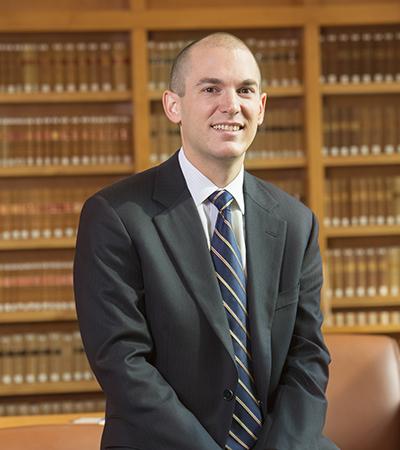
Thimmesch presents at 2023 SALT Symposium
15 Jun 2023
Professor Adam Thimmesch presented "A Future for the State Corporate Income Tax," at the 2023 State and Local Tax Symposium on Friday, June 16. As one of seven lead authors featured at the symposium, Thimmesch participated in a panel discussion with other tax professionals. The symposium took place at the Northwestern Pritzker School of Law in Chicago.
Professor Thimmesch's research focuses on state tax policy and the impact of modern technology and markets on existing legal structure and on the states and their residents. At Nebraska Law, he serves as the faculty director of the Law+Business program and teaches Individual Income Taxation, State and Local Taxation, and Taxation of Business Entities.
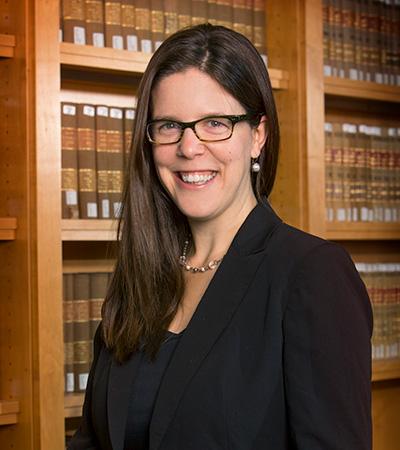
Shoemaker's essay forthcoming in Southwestern Law Review
14 Jun 2023
Professor Jessica Shoemaker's essay, "Land Reform in the Fifth World," will be included in a forthcoming symposium issue of the Southwestern Law Review. Professor Shoemaker spoke as a panelist at the symposium, "A Nation Within: Navajo Land and Economic Development," in November 2022.
Read the abstract below:
In this time of rapid climate change and gaping inequality, we face urgent questions about the ability of current property systems to sustain us into the future. But how does property-system change happen? Land reform is difficult to imagine, much less implement, within a physical landscape already so lavishly built and also embedded with deep layers of tradition, experience, and law. In this short Essay, I argue that there are important lessons from Ezra Rosser’s recent book, A Nation Within: Navajo Land and Economic Development, for the wider project of Indigenous and, ultimately, American land reform. Property scholars ignore these issues of Indigenous property and land governance to our collective detriment.
This Essay makes three particular contributions. First, I outline with some specificity why centering contemporary Indigenous land tenures within any wider study of America’s already pluralistic property system is so important. Second, building on Rosser’s detailed case study of Navajo land and economic development, I draw some wider lessons about the process of how land reform happens. Although law change is needed to implement many desired innovations, the Navajo experience underlines the critical role of local action, imagination, and persistence. Finally, the Essay takes a brief journey to review the experience of some First Nations in Canada—where Indigenous-led land reforms are also being pursued in a similar but different context—to expand on ideas about the architecture of successful land reform projects. When we widen our scholarly attention—humbly, and with respect—we find an abundance of critical, active land-reform projects that are ongoing and worthy of greater care and concern as we reimagine our future together in this world, and maybe the next.
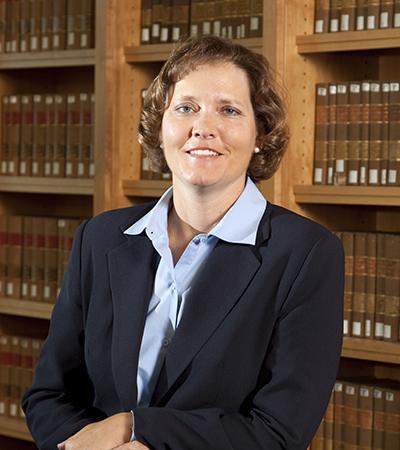
Medill elected AALS Chair of the Section on Employee Benefits Law
13 Jun 2023
Professor Colleen E. Medill has been elected as the Chair of the Section on Employee Benefits Law for the Association of American Law Schools (AALS). As Chair, she is organizing a scholarly program on "Emerging Issues in Retirement Equity,” which will take place on January 4, 2024, at the AALS Annual Meeting in Washington, D.C. The program is being co-sponsored by the AALS Sections on Aging and the Law, Poverty Law, and Minority Groups.
Retirement equity addresses the structural barriers to accumulating retirement savings that result from the federal laws and regulations governing employer-sponsored retirement plans. Although the SECURE ACT 2.0 of 2022 attempted to address some of these structural barriers, more reforms are needed so that all workers can achieve retirement income security. The program speakers will explore these issues and propose potential solutions.
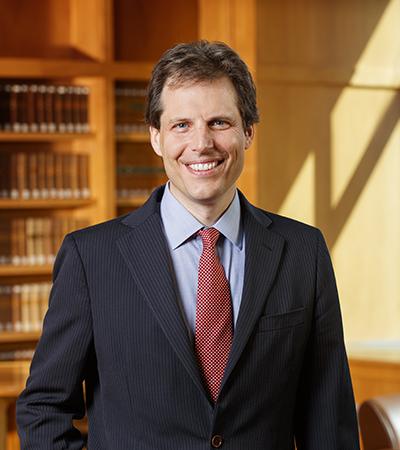
Berger featured on "Supreme Myths" podcast
12 Jun 2023
Professor Eric Berger was recently featured on "Supreme Myths," a podcast hosted by Professor Eric Segall of Georgia State College of Law. The podcast covers cases in the Supreme Court and constitutional law.
In this episode, Professor Berger discusses constitutional conceits in statutory interpretation, judicial rhetoric and the use of lethal injections. Listen here.
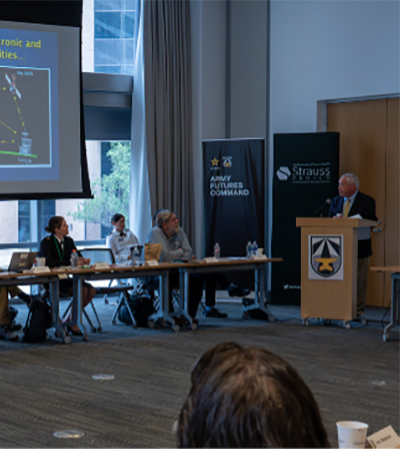
Beard presents at 1st Annual Future of Warfare and Law Symposium
12 Jun 2023
Professor Jack Beard presented “Military Space Operations Law: Missteps, Myths, and Challenges,” at the 1st Annual Future of Warfare and the Law Symposium at the U.S Army Futures Command in Austin, Texas, on May 11, 2023. The Symposium was co-sponsored by the United States Military Academy Lieber Institute for Law and Land Warfare and the Robert Strauss Center for International Security and Law at the University of Texas at Austin.
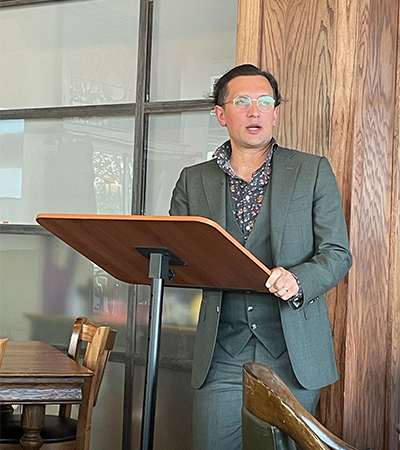
Cava, '24, clerks at Allo Fiber
31 May 2023
Matias Cava, '24, recently started as a summer law clerk at Allo Fiber, a prominent telecommunications company based in Nebraska.
"I'm excited to work with Allo because it is a young, Nebraska-born tech company in a period of exponential growth. Clerking with an expanding company means that I get to work on vital legal issues, be they cyber security, cyber policy, or research into arcane property laws. This work isn't filed away, never to be seen again. Instead, I work side-by-side with Allo's in-house counsel to come up with real solutions to real problems."
In addition to his clerkship, Matias is a Schmid Research Fellow, former Vice President of the Space, Cyber, and Telecomm Law Club, and was recently elected Editor in Chief for the Nebraska Law Review. Matias also played a vital role as a member of the '22-'23 Manfred Lachs Team, which placed third in the Semifinal rounds of the International Law Competition held in Washington DC in March 2023.
Matias initially chose Nebraska Law “(...) because of its world-renowned Space, Cyber, and National Security program, and its emphasis on expertise. It has been a privilege to learn from faculty like Professors Beard, Von der Dunk, and Langvardt."
When asked for advice for future students in the program, Matias highlights the significance of maintaining a strong connection to the initial inspiration to act.
"Never lose sight of what inspired you to pursue your interests. All three areas of law that this program comprises require vision to pursue seriously. This means investing in skills that will prepare you to navigate entirely new legal waters."
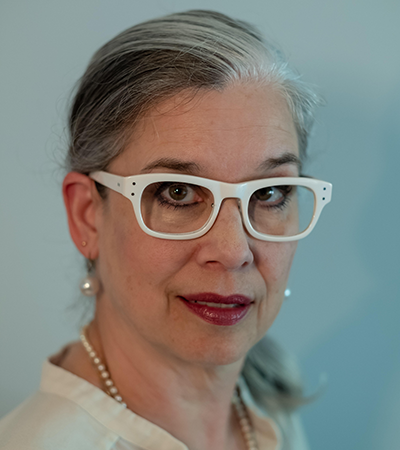
Pritchard-Kelly to teach new course on Telecommunications Regulation
22 May 2023
Ruth Pritchard-Kelly, a renowned expert in satellite regulatory policy with over 30 years of experience, will be instructing a new course on Telecommunications Law at Nebraska Law during the Fall 2023 semester. The course aims to provide students with a comprehensive understanding of the global legal framework governing wireless communications, including both terrestrial and space-based systems. By exploring the historical development of telecommunications and examining the economic drivers behind regulation, students will gain valuable insights into the current challenges facing the industry. Furthermore, the class will delve into common policy issues and cover the application process for licenses with the US Federal Communications Commission and the International Telecommunication Union.
Previously serving as the Senior Adviser for Space Policy at OneWeb, Pritchard-Kelly has advised governments and a wide range of public and private entities on regulatory, spectrum, and sustainable space policy matters. She currently holds a position on the Advisory Committee for the Secure World Foundation and has contributed to the boards of the US Telecommunications Training Institute, the Arthur C. Clarke Foundation, and the Commerce Department's Spectrum Management Advisory Committee. Ruth holds a Master's degree in space and telecommunications policy from George Washington University and a J.D. from the University of Maryland.

Lt. Col. Seth Dilworth to teach course on Space Operations Law
22 May 2023
Lt. Col. Seth Dilworth, a former Nebraska LL.M. alum, will be instructing a course on Space Operations Law during the J-Term in January 2024. The course will explore various topics pertaining to national security and military operations in outer space. Students will gain insights into the strategic aspects of the space domain, including the utilization of orbits and spectrum for enhancing national security, as well as delve into the historical development of space strategy. The course will also cover the roles of agency organizations, treaty interpretation, the law of armed conflict, department of defense rules of engagement, soft law, national policy, and NATO policy.
Dilworth currently serves as Deputy Chief Space Law Division & Space Law Attorney at the Office of the Judge Advocate General, USAF, at the Pentagon. He graduated with his J.D. from Arizona State University and has had a successful career as a Judge Advocate General with the Air Force, serving at many different bases while advocating for special victims and practicing operational law.
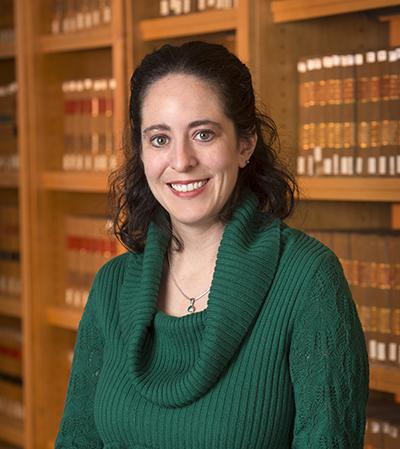
Blankley's article published by University of Miami Law Review
19 May 2023
Professor Kristen Blankley's article, "A Muddy Mess - the Supreme Court's Jurisprudence on Jurisdiction for Arbitration Matters," has been published by the University of Miami Law Review.
This article discusses the complications from the Court's 2022 decision Badgerow v. Waters, complicating federal court jurisdiction for arbitration issues.
Read the abstract below:
The Supreme Court’s 2022 Badgerow v. Waters decision attempts to create a bright-line rule regarding access to federal courts to hear arbitration matters. On its face, the Badgerow majority opinion reads like a straightforward exercise in textualism. Badgerow interpreted the judicial test for jurisdiction under the Federal Arbitration Act (“FAA”) provision regarding vacatur differently than it interpreted the jurisdictional test for a motion to compel under a different part of the statute. However, Badgerow leaves courts, which were already struggling to decipher the Supreme Court’s 2009 decision of Vaden v. Discover Bank, with a significant number of outstanding questions. Although these two cases can theoretically be read together, the two holdings leave open a host of practical difficulties that could lead to years of litigation on arbitration matters—matters that should otherwise be resolved simply and efficiently. This Article outlines the two decisions, how they are read together, and how they leave open inconsistencies. This Article then discusses the likely practical fallout from Badgerow, a proverbial “muddy mess.” The “muddy mess” has already begun to occur, based on early lower courts working with these two inconsistent precedents. This Article suggests legislative changes to create a consistent and predictable rule for motions dealing with arbitration practice.
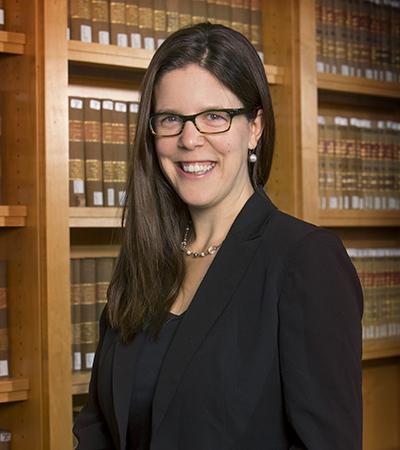
Shoemaker elected VP of ALPS
19 May 2023
Professor Jessica Shoemaker has been elected Vice President of the Association of Law, Property & Society (ALPS) at their annual meeting, hosted by the University of Southampton in England. ALPS is an organization for scholars working on interdisciplinary legal scholarship on all aspects of property law and policy. This includes real, personal, intellectual, intangible, cultural, personal, and other forms of property.
Professor Shoemaker also served as Program Chair for this meeting, which drew over 150 scholars from around the globe to share interdisciplinary work on all aspects of property law, theory, and practice.
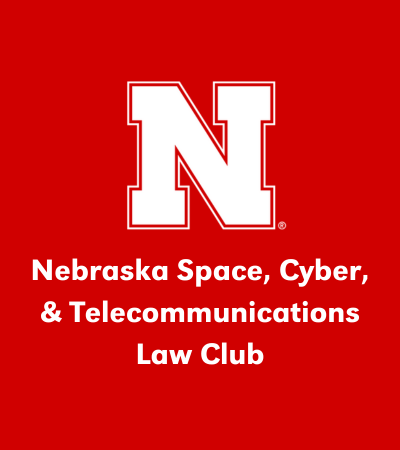
Space, Cyber, and Telecommunications Law Club Officers Elected for '23-'24
16 May 2023
The Nebraska Space, Cyber, & Telecommunications Law Club recently held elections to select leadership roles for the '23-'24 school year. Rising 3Ls Emma Schlenker and ZitaAnne Reno were elected as Co-Presidents. Rising 2Ls Brad Kimball and Keegan Huffman were elected Co-Vice Presidents, while Dakota Figueroa was elected Event Coordinator and Zach Hellen was elected Career Coordinator.
Formed in 2014, the Space, Cyber & Telecommunications Law Club works closely with the similarly named program within the College of Law. The club hosts special lectures, social events, and networking opportunities throughout the year. Notably, the club hosts an annual "Star Party" at Branched Oak Observatory every fall. Working closely with the Program Directors, Professor Jack Beard, Elsbeth Magilton, and Lauren Bydalek, the club helps to collaborate and provide unique opportunities for law students. Membership in the club is open to all students, and no relation to the formal academic program is required—all are welcome!
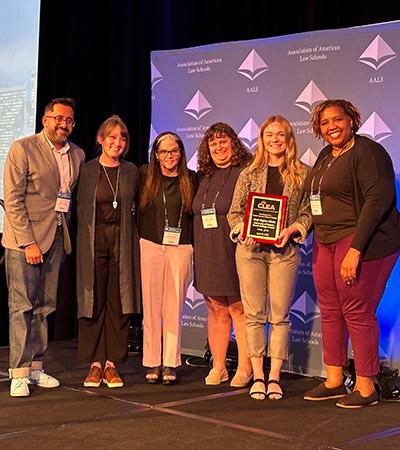
Jefferis, University of Denver team receive CLEA Award
11 May 2023
Professor Danielle Jefferis (second from left) and a team from the University of Denver Sturm College of Law have received the 2023 Clinical Legal Education Association's (CLEA) Award for Excellence in a Public Interest Case or Project. Professor Jefferis previously taught as a Visiting Professor in the Civil Rights Clinic (CRC) at Denver and was a member of a team of clinic faculty and student attorneys that advocated for the rights of Seifullah Chapman, whose attorney was initially seeking help in securing him adequate medical care.
The CRC team successfully challenged the constitutionality of Mr. Chapman's convictions, resulting in his release from prison in 2018 and reunion with his family after being separated from them for more than a decade. In 2022, Mr. Chapman received a $300,000 settlement from the Bureau of Prisons (BOP).
CLEA Co-Presidents (l and r, respectively) Professor Gautam Hans and Professor Lynnise Pantin presented the award to (2nd from l to r) Professor Jefferis; Professor Laura Rovner, Director, CRC; Professor Nicole Godfrey, former CRC Visiting Professor, currently Associate Clinical Professor at Michigan State University College of Law; and Annika Adams, JD'21, CRC Student Attorney 2019-20, 2020-21, currently associate at Highlands Law Firm.
For more on Mr. Chapman's case and the work of generations of CRC student attorneys: www.law.du.edu.
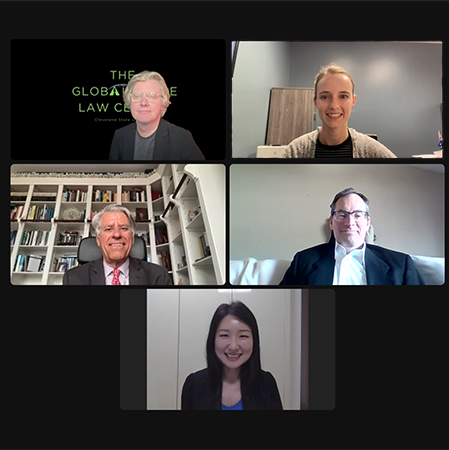
JSD Student Defends Dissertation on Korean Space Law
08 May 2023
Youngshin Ann (JSD ’23) successfully defended her dissertation entitled “National Space Legislation and Policy in the Republic of Korea: An Analysis of the Current Status and Suggestions for the Future Legal Regime” on May 8th, 2023. Ahn’s dissertation provides a comprehensive evaluation of Korean space legislation and recommendations for improvement. The analysis focused primarily on South Korea’s four domestic space laws, their corresponding regulations, and compared them to international laws and other countries’ domestic space legislation. The first of its kind in the Korean academic community, her dissertation highlights South Korea’s compliance with international obligations, and proposes possible revisions to South Korean space legislation for a better legal framework in the future. Ahn’s committee included Nebraska Law Professor’s Frans von der Dunk and Matthew Schaefer, as well as Mark Sundahl, Professor at Cleveland State University Law.
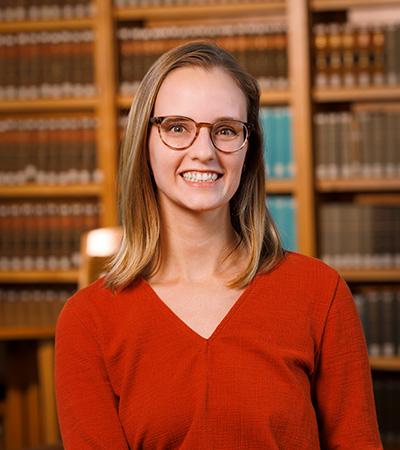
Bydalek presents on Space Law to the NSBA
08 May 2023
Lauren Bydalek, Associate Director and a former alum of the Nebraska Space, Cyber, and Telecommunications Law Program, presented a 1 hour CLE webinar for the Nebraska State Bar Association on May 4th, 2023. The presentation titled "Space Law 101" covered the basics of international and domestic space law. The presentation covered the fundamentals of the international space law, focusing primarily on the Outer Space Treaty and its principles of cooperation, peaceful purposes, and international responsibility. After a discussion of the international law, the webinar covered the relevant agencies and acts to consider when conducting launch and satellite activities from the United States.
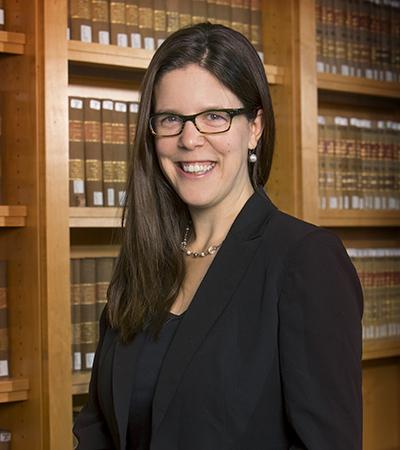
Shoemaker presents at AAG Annual Meeting
05 May 2023
Professor Jessica Shoemaker presented as an invited panelist at the American Association of Geographer (AAG)'s Annual Meeting this year. Her presentation, "Property and Place: Calibrating Commodification," was part of a special themed session on "Geographies of Real Property Across the Urban/Rural Divide."
Read the presentation abstract below:
This project of legal scholarship analyzes the role of property law in shaping patterns of increasing commodification of both urban and rural land ownership. As our most fundamental system for regulating access to or exclusion from specific spaces, property law choices profoundly structure our social relations and our physical, material world. In this project, I focus on how property law not only facilitates but actively encourages these more abstract and disembodied forms of ownership.
Despite popular rhetoric about the primacy of possession and human attachments to land, the reality on the ground includes numerous instances of real property rights recognized without any requirement of owner possession whatsoever and, conversely, extensive examples of real-time possessors who are denied any property protection. This project covers both rural and urban examples, exploring increasing institutional and foreign investment in American farmland (as rural landscapes further depopulate and agriculture gets increasingly industrialized) and private equity’s growing appetite for single-family housing (as America’s glaring wealth gap expands).
Property law is a common feature in shaping this more commodified form of land ownership across geographies, and so a more detailed analysis of how property does this work across diverse contexts can reveal important insights about which features of property design are most impactful and why. At the same time, thinking across these spaces can also reveal where contextual differences may matter for future law reform work, including different types of leasehold precarity and different capacities to implement and enforce more public oversight and land-use regulation.
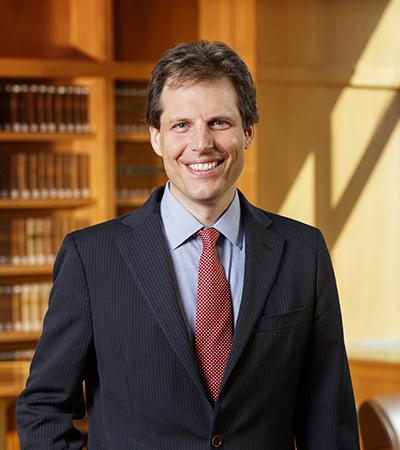
Berger presents at Cardozo Law School
05 May 2023
Earlier this year, Professor Eric Berger presented a draft paper at a workshop at Cardozo Law School in New York City.
Berger's presentation was entitled "Is This Still Scalia's Court?: The Evolution of U.S. Conservative Legal Thought." It explored ways in which the current Supreme Court has abandoned ideas championed by Justice Scalia, the icon of the American legal conservative movement.
Professor Berger's scholarship focuses on constitutional law. Much of his work explores judicial decision-making in constitutional cases, with special attention to deference, fact-finding, rhetorical strategies, and other under-theorized factors that help shape judicial opinions in constitutional cases.
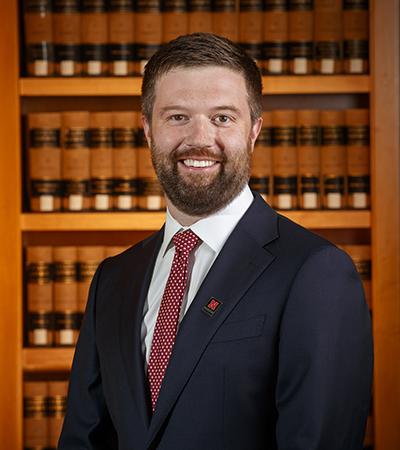
Tierney's article accepted by University of Pennsylvania Journal of Business Law
05 May 2023
Professor James Tierney's article, "Stockbroker Secrets," co-authored with Professor Benjamin Edwards of the University of Nevada–Las Vegas William S. Boyd School of Law, has been accepted in the University of Pennsylvania Journal of Business Law.
Read the abstract below:
In the market for financial advisers, ordinary people have a hard time searching for high-quality advice and monitoring what they get. To promote trust and deter low-quality advice, regulators disclose to the public information about advisers who’ve been complained about, sued, or had other red flags. This “BrokerCheck” solution to the search-for-quality problem has a well-known flaw: it produces too much expungement of information from the public disclosure database. Brokers routinely secure the deletion of information about previous customer complaints and settlements that others would find useful in comparison shopping among advisers based on quality. Recent scholarship has found that brokers who receive expungement are more likely to get in trouble again. The persistence of secretly recidivist stockbrokers has real stakes for markets and for investor protection.
At the end of July 2022, stockbroker regulator FINRA proposed modest reforms to this system that might improve the accuracy problem somewhat. This timely article argues that regulators should head back to the drawing board. Our theoretical framework for thinking about expungement counsels in favor of a doctrinal fix that would address the overproduction of false-positive and -negative expungements, and promote public participation and oversight. FINRA should carry out expungement only in a hearing panel procedure that can guarantee robust error correction and public participation through the Securities and Exchange Commission and the federal courts—and not in arbitration, as it currently does.
Drawing on literature about the tradeoff between adjudication and error costs in institutional design, we offer a unique theoretical criticism for carrying out expungement in FINRA arbitration—and a new reason for reform. Regulators’ decision to carry out expungement in arbitration generates significant and costly errors. These include enabling a pooling equilibrium among good and bad-type brokers competing for sophisticated consumers; redirecting capital allocation toward less productive uses; and (in the case of false negatives) imposing reputational consequences to brokers. These costly errors can be ameliorated with modest reforms to the administrative process. Our article reconstructs the policies behind the disclosure solution and identifies potential impediments to comparison shopping and monitoring for quality in the market for advice. Shifting to an administrative forum, we argue, would better implement those policies—and would promote participation in the processes of constructing and gatekeeping access to capital markets. We conclude with comments on the uncertainty for our proposal of an ascendant anti-administrativism in the federal judiciary that has trained its eye on securities regulators.
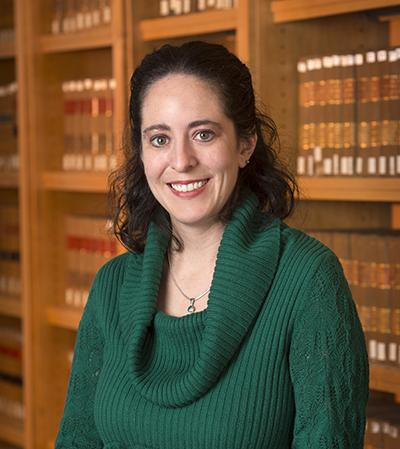
Blankley joins Community Justice Center Board of Directors
28 Apr 2023
Professor Kristen Blankley has joined the Board of Directors of the Community Justice Center (CJC) in Lincoln, Nebraska.
The CJC provides restorative justice practices to residents in Nebraska and Colorado including education, circle processes, and restorative dialog. The center provides these services both in the community and within prisons. Professor Blankley has extensive research and experience in restorative justice.
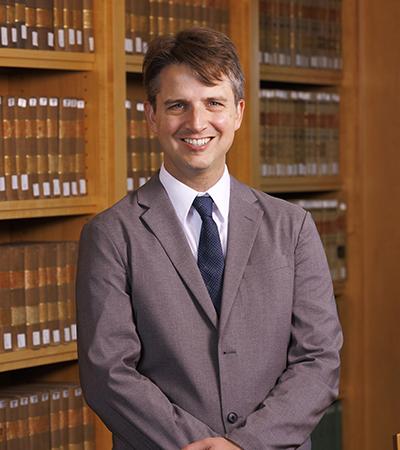
Langvardt's article accepted by Yale Journal of Law & Technology
28 Apr 2023
Professor Kyle Langvardt's article, "Crypto's First Amendment Hustle," has been accepted for publication by the Yale Journal of Law & Technology.
Read the abstract below:
Crypto industry attorneys have argued in litigation and before agency regulators that the First Amendment immunizes their line of business from ordinary market regulation. On the merits, these arguments range from weak to frivolous. But they nevertheless create value for the crypto industry in two ways. First, they help to drive a predatory marketing strategy that attracts retail investors with appeals to individual liberty and resistance to “financial censorship.” Second, they tee up arguments that financial regulators’ jurisdiction should be interpreted narrowly under the “canon of constitutional avoidance” and the “major questions doctrine.” Overall, crypto’s First Amendment opportunism interferes with public efforts to protect investors, collect taxes, and fight financial crime—and ultimately, it debases the First Amendment itself. At every opportunity, agencies and courts should debunk these arguments in terms that are clear enough for the industry’s target audiences to understand.
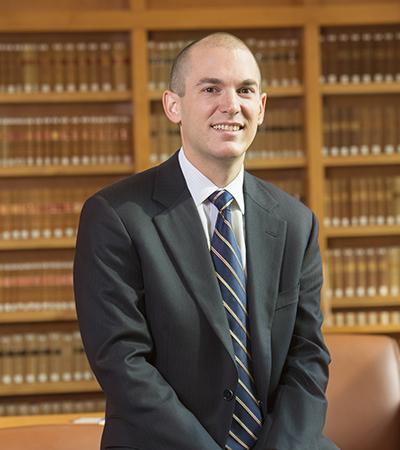
Thimmesch's article accepted by Florida State University Law Review
28 Apr 2023
Professor Adam Thimmesch's article, "Cooperative Federalism and the Digital Tax Impasse," co-written with Professor Orly Mazur at the SMU Dedman School of Law, has been accepted for publication by the Florida State University Law Review.
In the article, Thimmesch and Mazur analyze the economic, political, and conceptual challenges that have impeded state digital tax reform over the last three decades. They then survey historic reform and uniformity efforts in state taxation back to the early 1900s and conclude that it is unlikely that the states or the federal government will be able to achieve digital tax reform through unilateral efforts.
Instead, Thimmesch and Mazur suggest that those interested in reform should look to the lessons learned from cooperative approaches used by the states and the federal government in other areas of law. They discuss different models of cooperative federalism and how those approaches might best leverage the different competencies and interests of the states and the federal government. The article concludes that a cooperative approach is likely the best path forward and suggests design features for consideration in future reform efforts.